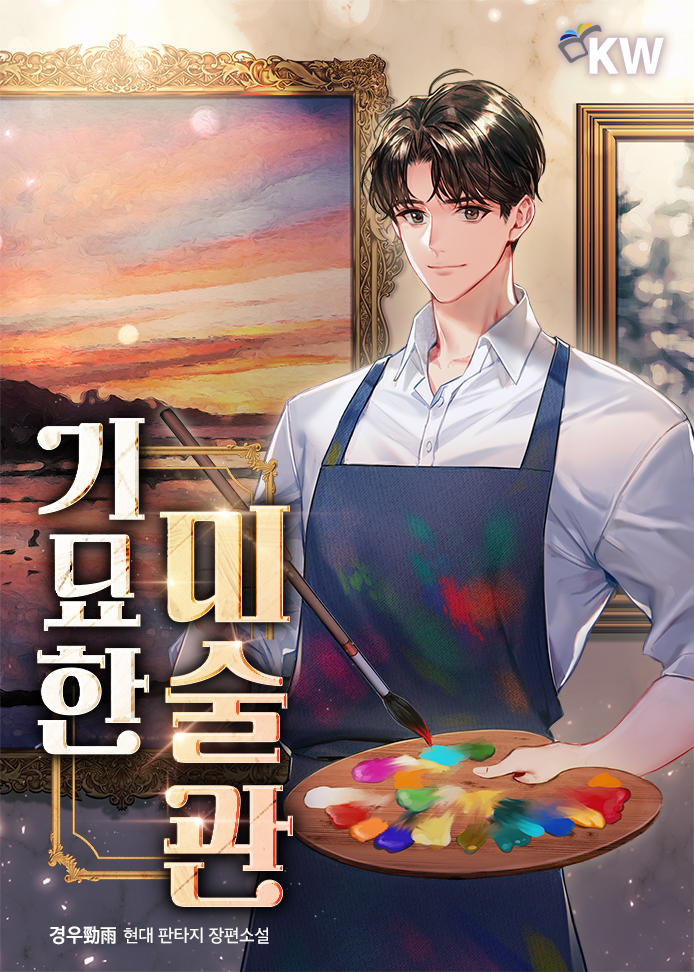Meeting Monet (3)
On the way to take Lea home.
Fortunately, the time spent in the dream was different from the current time, so not much time has passed.
As I hand Lea over to Sophia, who was waiting for us, the child runs off with baby steps, turns back, and winks, making a 'secret' sign with her index finger.
I laugh and reciprocate the secret signal.
It's because of what I said to Lea before leaving the dream.
"Lea, remember, it's our secret that we came into this dream together, okay?"
"Why?"
"People don't believe in these kinds of dreams. It's a secret just for us."
"Wow, I love secrets!"
I should have also told her that we won't be able to talk outside like this.
I hadn't thought that far ahead.
As soon as I came out of the dream, Lea said something to me, but I couldn't understand a word.
I don't know what she thought, but after trying to talk to me a few times, Lea just nodded silently and then expressed herself through gestures instead of words.
I waved goodbye until the toddling figure of Lea disappeared into her mother's arms. By then, it was already lunchtime.
I went to Augusto's restaurant, asked for the lunch menu, and sat at a spot with a good view of the square.
According to Lea, most of the villagers were employed in the factory construction. That's why the place was so deserted. Once the factory is completed and starts operating, people will return. The square will eventually be bustling with people again.
Unlike breakfast, lunch took quite a while since I could choose from the menu.
I propped my chin on my hand, looking at the square, lost in thought.
"The museum has followed me all the way to Italy."
How did this happen?
Do I really need to go to the hospital?
Until now, I just thought of the strange museum in Jongno as the catalyst for my dreams, or a muse.
But the museum itself has been following me. Does that make me a madman?
I sighed. It all seemed so far from normal.
Then Augusto came to my table with a tray, placing a bowl in front of me. He said something to me. What is he saying? I shrugged, indicating I couldn't understand.
Then the gentleman pointed to the sky, furrowing his brow, and then gestured inside.
"Ah, you're suggesting I move inside because of the strong sunlight? No, it's fine, I like the sunlight."
I signaled that I was okay, but the gentleman kept insisting that I change my seat. Only after I firmly gestured that I was fine and understood him did he return to the kitchen.
The intense midday sun.
My seat was half in the sunlight, making it a bit warm.
However, it was bearable thanks to the parasol.
I had chosen this spot specifically because I didn't want to sit in a secluded area and eat while looking at the wall. There was no reason to move.
"Let's give it a try, shall we?"
Today's lunch menu was Saltimbocca.
It was a dish I had never heard of back in Korea.
It's an Italian dish where thinly sliced veal is wrapped with prosciutto and sage, a type of herb, like a roll, and then cooked in wine and butter.
I was pleasantly surprised at how delicious it was when I sliced a big piece of meat and put it in my mouth.
"Wow!"
Maybe he heard my exclamation?
He peeked out from the kitchen.
He was pleased when I clapped and gave him a thumbs-up.
It must be the most gratifying moment for someone who cooks.
But it wasn't just politeness – it really was delicious.
How do they make this?
As I thought about the ingredients and spices that might be in the dish, I noticed a slight change in the sunlight. It's the kind of change in light you notice when you're staring intently at one spot.
There are moments in life when we become aware of the sun moving.
Like at sunrise and sunset, or when the sun emerges from the clouds. But when the sun is continuously visible, we rarely notice the changes in light.
Only when you're staring at one place for a long time can you detect such subtle changes.
As I noticed the changing light, Monet's face came to mind.
His expression was stern.
In it was the despair over forcing his wife to wear clothes she disliked for modeling and his own reluctance in painting what he didn't want to.
'A painter who lived through the last era when art and beauty were meaningful.'
The last moment when art was beautiful was during the Impressionist period from 1840 to 1940.
Read ahead by supporting me on Ko-fi. Access 5 advance chapters with the Doddle Dabbler Tier ($8) or 10 advance chapters with Artist Apprentice Tier ($15) or 20 advance chapters with Master Artisan Tier ($25) For every $15 collected on Ko-fi, I will release an extra chapter. Choose your tier by clicking the 'Support me' button! Rate and review this novel on NU to help people find this novel. Bonus chapters on reaching milestones. Happy reading!

